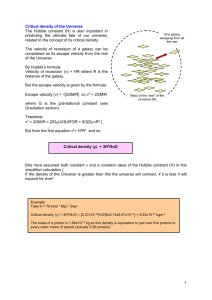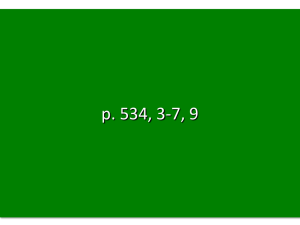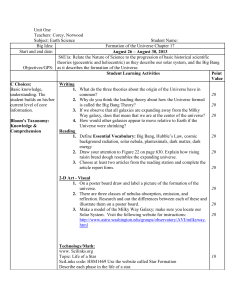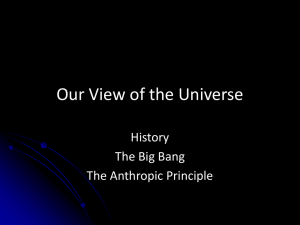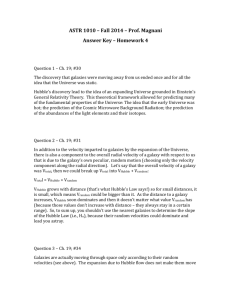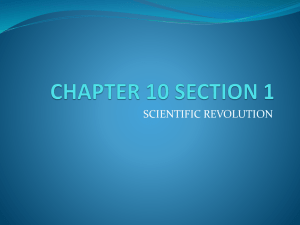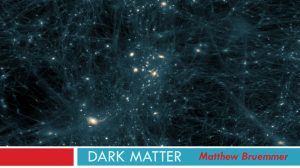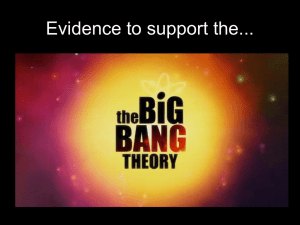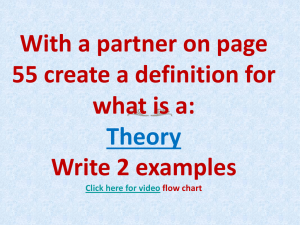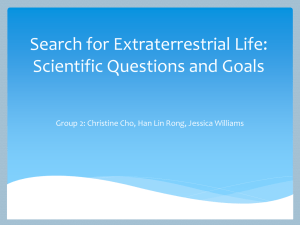Quiz
advertisement
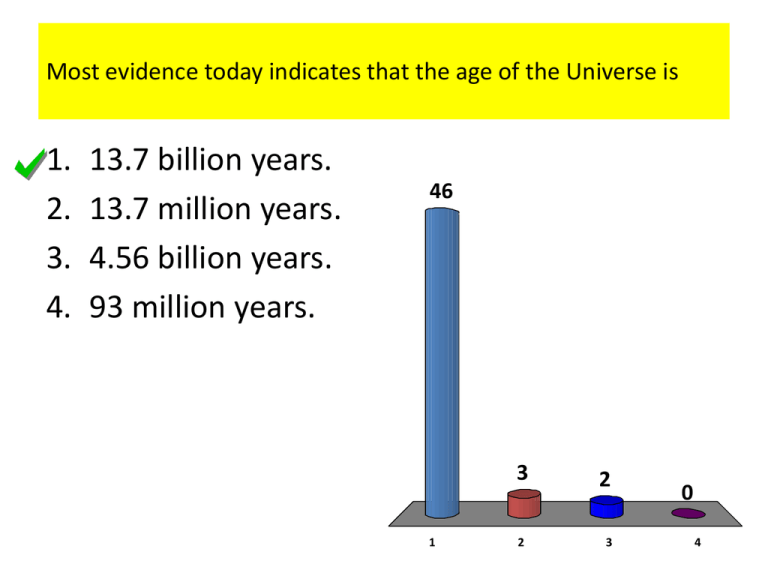
Most evidence today indicates that the age of the Universe is 1. 2. 3. 4. 13.7 billion years. 13.7 million years. 4.56 billion years. 93 million years. 46 1 3 2 2 3 0 4 According to Hubble’s Law, if galaxy B is three times farther away from us than galaxy A, then galaxy B will move 1. toward us three times faster than A. 2. away from us nine times faster than A. 3. away from us three times faster than A. 4. toward us nine times faster than A. 5. away from us at about the same speed as A. 37 11 3 0 1 0 2 3 4 5 Which of the following statements about the implications of Hubble’s Law is FALSE? 1. 2. 3. 4. 5. The law implies that the whole universe must be expanding. It can be used to measure distances to remote galaxies for which we can measure a Doppler shift. The law does NOT require us to be at the center of the expanding universe. If you were observing the universe from a distant galaxy, you would NOT see all the galaxies moving. Although galaxies move away from each other, they themselves are not expanding in size. 38 8 4 1 0 1 2 3 4 5 According to the models of the universe that follow from Einstein’s theory of relativity, where in the universe did the Big Bang occur? 1. Nowhere; there was no Big Bang in these models. 2. At roughly the location of the Milky Way; that is why all the other galaxies are moving away from us. 3. Everywhere at the same time. 4. At the location of the Great Attractor. 49 1 1 1 2 0 3 4 If you wanted to find a type of atom in your little finger that has been in its present form (been the same element) since the beginning of the universe, which element should you look for? 1. 2. 3. 4. Hydrogen Carbon Iron Oxygen 51 1 0 0 2 3 0 4 The reciprocal of the Hubble constant (1/H0) is a rough measure of 1. the period of a typical Cepheid variable. 2. the distance to the last galaxies that formed. 3. the age of the universe. 4. the luminosity of a type I supernova explosion. 5. the cost of building a telescope in space. 43 3 1 3 2 2 3 4 0 5 The resolution of Olbers’ paradox suggests that it gets dark at night because 1. the universe is not infinite in age. 2. the universe is closed. 3. the universe is not static. 4. the universe is flat. 38 8 3 1 2 2 3 4 If the Hubble constant, H, is larger at great distances, then 1. the universe must be older than we suspect. 2. the matter in the universe is not important to its motion. 3. the expansion is slowing. 4. the expansion is accelerating. 45 1 1 1 2 4 3 4 The best data and models suggest that the universe is 1. open, expanding and accelerating. 2. open, expanding, but decelerating. 3. closed, expanding and accelerating. 4. closed, expanding, but decelerating. 5. flat, expanding and accelerating. 26 13 10 0 1 2 3 1 4 5

